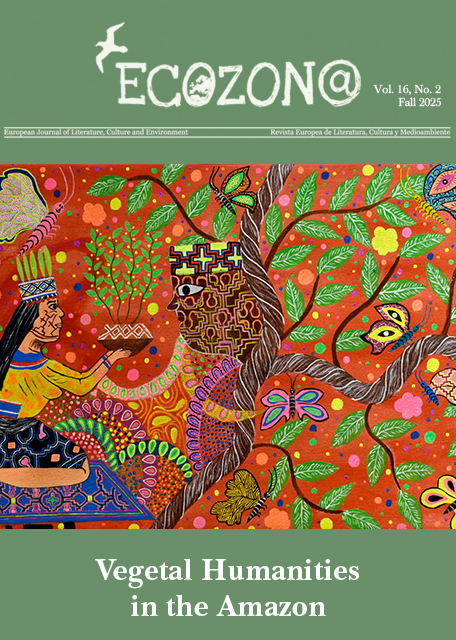Slow Practice as Ethical Aesthetics: The Ecocritical Strategy of Patience
DOI:
https://doi.org/10.37536/ECOZONA.2020.11.2.3453Parole chiave:
slow, slow walking, slow cinema, ecocritical estrategy, pilgrimage, Middle Ages, ethical practiceAbstract
How can cultural works from the distant past –such as the Middle Ages—teach us ethical modes of behavior for today? One form of ecopoetics emerges through slow practice, making the reader collaborate in the measured process of co-creating the emotional impact of an imaginative text. Drawing on rich debates about slow cinema, this essay suggests how Chaucer’s The Clerk’s Tale—from his grand fourteenth-century poem, The Canterbury Tales—evokes a slow eco-aesthetics with ethical impact. The relative slowness of walking shapes how individuals respond to their environment. In turn, a deceleration of perception affects how travel comes to be written about, as seen in the tale of Patient Griselda. Introduced by Giovanni Boccaccio and adapted by such writers as Francesco Petrarch, Geoffrey Chaucer, and Christine de Pizan, she acts dynamically through her apparent silence and notorious patience. The environmental humanities offer paradigms for us to consider the strategies of slowness and patience. This essay shows how medieval pilgrimage literature evokes a slow aesthetic which is at the same time an ecocritical strategy. Slowness results in an enduring impact and heightened sensitivity to the ecological damage for which we all are culpable. Slower somatically inculcates key aspects of environmental awareness. Pilgrimage texts from the Middle Ages teach us slow ethical aesthetics, suggesting that the medieval moment—finally and a long time coming— is now.
Downloads
##submission.downloads##
Pubblicato
Fascicolo
Sezione
Licenza
Authors who publish with this journal agree to the following terms:
a) Authors retain copyright and grant the journal right of first publication with the work simultaneously licensed under a Creative Commons Attribution License that allows others to share the work with an acknowledgement of the work's authorship and initial publication in this journal (CC BY-NC for articles and CC BY-NC-ND for creative work, unless author requests otherwise.
b) Authors are able to enter into separate, additional contractual arrangements for the non-exclusive distribution of the journal's published version of the work (e.g., post it to an institutional repository or publish it in a book), with an acknowledgement of its initial publication in this journal.
c) Authors are permitted and encouraged to post their work online (e.g., in institutional repositories or on their website) prior to and during the submission process, as it can lead to productive exchanges, as well as earlier and greater citation of published work (See The Effect of Open Access).










